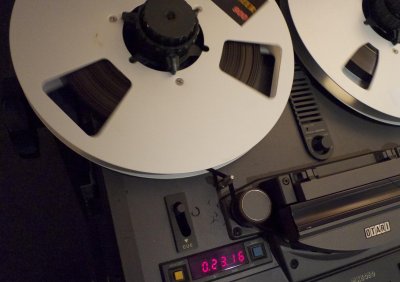- Messages
- 10,657
- Location
- Boston area
I know I mentioned this in another thread, but feel it's so important that I want to wave the flag again... (and apologies if this has been mentioned before) ...Hand-written letters
My wife came upon a box of letters from her high school and college days. To see and read the handwritten letters (one written on a brown bag from a college crony who claimed not to have enough money for stationary) was like touching the past. Especially true of the letters from those who have since departed. WRITE LETTERS (sorry if I'm yelling again...)!!
My wife came upon a box of letters from her high school and college days. To see and read the handwritten letters (one written on a brown bag from a college crony who claimed not to have enough money for stationary) was like touching the past. Especially true of the letters from those who have since departed. WRITE LETTERS (sorry if I'm yelling again...)!!



